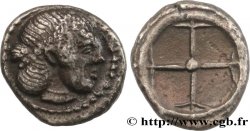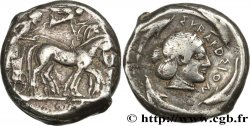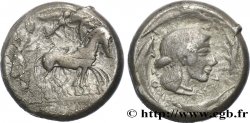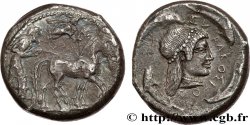bgr_387687 - SICILY - SYRACUSE Obole
Not available.
Item sold on our e-shop (2020)
Price : 320.00 €
Item sold on our e-shop (2020)
Price : 320.00 €
Type : Obole
Date: c. 480-470 AC.
Mint name / Town : Syracuse, Sicile
Metal : silver
Diameter : 9 mm
Weight : 0,61 g.
Rarity : R2
Coments on the condition:
Exemplaire sur un petit flan. Très belle tête au droit, de style fin et de haut relief. Très belle patine de collection ancienne
Catalogue references :
Obverse
Obverse legend : ANÉPIGRAPHE.
Obverse description : Tête féminine à droite avec un cordon perlé dans les cheveux et un collier ; une partie de la chevelure tombant sur la nuque.
Reverse
Reverse legend : ANÉPIGRAPHE.
Reverse description : Roue à quatre rayons avec un moyeu central.
Commentary
Poids léger. Il s’agit bien d’une obole et pas d’une litra. Ce type pourrait avoir inspiré le monnayage primitif de Massalia (Marseille) à la roue avec les oboles au Lacydon (voir MONNAIES XV, n° 48). Le revers servira de modèle à la litra à la tête casquée (cf. MONNAIES XV, n° 46).







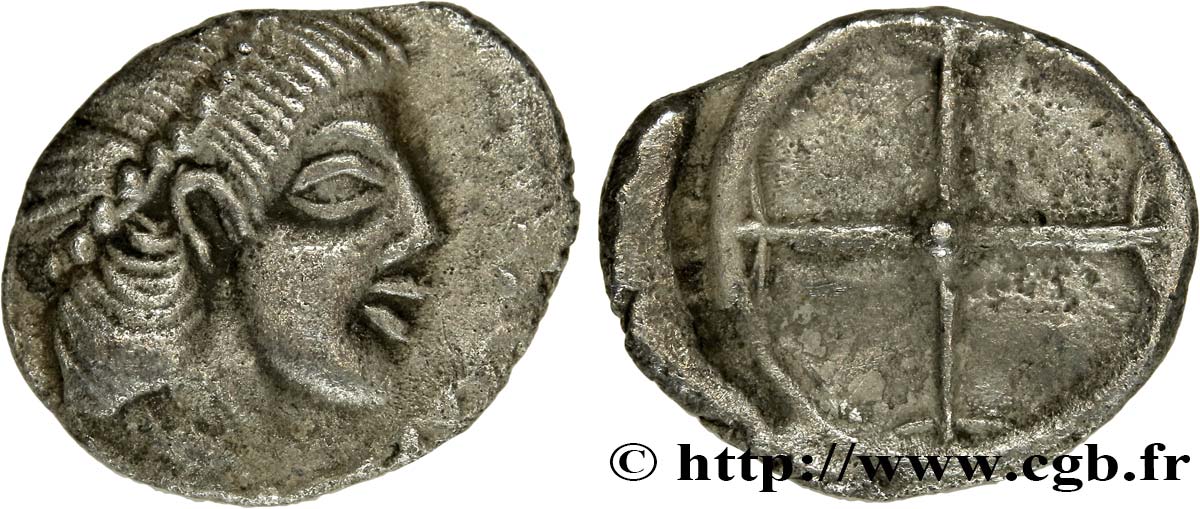
 Report a mistake
Report a mistake Print the page
Print the page Share my selection
Share my selection Ask a question
Ask a question Consign / sell
Consign / sell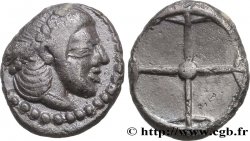
 Full data
Full data